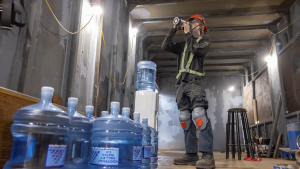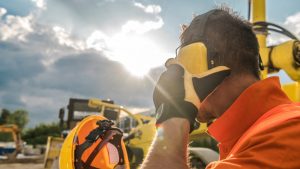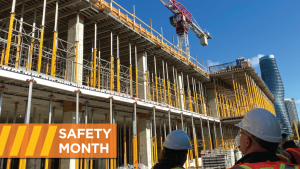Pumping concrete can be dangerous work.
In March 2021, a boom from a concrete pump truck broke and landed on two workers at a construction site on Gabriola Island, B.C., killing them on the spot.
In 2016, a concrete pumper truck collapsed and killed one man and seriously injured another at a construction site in Chilliwack, B.C.
And in 2019, a worker fell into a concrete hopper he was cleaning and was crushed by the equipment’s auger.
These are just three examples of what can happen to concrete pump operators on the job.
The chances of such grisly incidents recurring in B.C. decreased recently when the WorkSafeBC (WSBC) board of directors approved changes to the province’s Occupational Health and Safety Regulations that will make certification of concrete pump operators mandatory.
“It’s a first in the world,” said Mike McKenna, executive director of the BC Construction Safety Alliance (BCCSA), which is an enthusiastic supporter and promoter of the initiative. “And BCCSA is the only recognized
(by WSBC) certification body in British Columbia. We’ll provide the written tests and practical assessments the applicants must take to get their certificate.”
McKenna says “the overwhelming majority” of the industry says mandatory certification is the best way to ensure a safer workplace for concrete pumpers and anyone else onsite.
Josh Towsley, assistant business manager of the International Union of Operating Engineers Local 115, said, “Our union represents many concrete pump operators and we’ve been a big advocate of the changes.”
Charles Kelly, a former president of Concrete BC, where he managed the development of the Certified Concrete Pump Operator program, says the status quo ante was unsustainable.
We urge operators to at least complete the written exam to begin the process
— Ammar Kavazovic
BC Construction Safety Alliance
“Operators needed only a Class 3 driver’s licence,” said Kelly. “There was no requirement for training on a very complex piece of heavy equipment that can be very dangerous if operated by untrained and inexperienced hands.”
Carolyn Campbell, the present-day executive director of Concrete BC, says the regulation change was the result of more than 10 years of lobbying by members of Concrete BC’s board and members of the Concrete Pumping Committee.
“In the absence of any provincial requirement for safety training, Concrete BC partnered with the Construction Safety Network (now BCCSA) to develop and deliver a day-long safety training course for line and boom pumps,” said Campbell.
Although the course was available across B.C. only a few concrete pumping companies took advantage of it.
“It was clear that, without a regulation mandating safety training, the bad players in the industry would continue to ignore the resources available to them,” she said.
According to the new regulations, before a person operates, or supervises a person who operates, a concrete pump or placing boom at a
workplace, the employer must ensure the work is done in a competent and safe manner, taking into account the type of equipment being used and the circumstances of the workplace.
In addition, the employer’s duty to ensure extends to a multiple-employer workplace, the prime contractor at the workplace, and in any other case, the owner of the workplace.
See here for more detail on the new regulations:
Ammar Kavazovic, BCCSA’s director of programs and initiatives, says certification requires passing two examinations, a Certified Concrete Pump Operator (CCPO) Written Theory Test and CCPO Practical Assessment.
“The written test is administered online, available on-demand and is proctored virtually,” said Kavazovic. “It takes approximately 60 minutes to complete and is valid for one year.”
The CCPO practical examination is administered on an actual jobsite.
An examiner shadows the operator-applicant through a full day’s shift, from set-up to clean-out, observing the examinee and asking him or her to demonstrate the required competencies.
“Due to the nature of the material, it is very difficult and cost prohibitive to set up a testing facility, such as for mobile cranes,” said Kavazovic.
The written exam costs $250 and the practical test is $1,500.
BCCSA does not offer training for concrete pump operators.
“One of the conditions of a valid certification is that the training organization cannot examine the candidates,” said Kavazovic. “Training is offered by such organizations such as Concrete BC and the American Concrete Pumping Association.”
Before they are examined, candidates can opt for formal training or on-the-job mentorship and self-study.
“The choice is the candidates,’ whatever best suits their situation and how they learn,” said Kavazovic.
Although the regulation goes into effect Dec. 1, there is a two-year grace period before it becomes mandatory.
“We urge operators to at least complete the written exam to begin the process,” said Kavazovic. “Operators are expected to be certified by Jan. 1, 2024. Uncertified operators can operate a pump under the supervision of a certified pumper, so we encourage companies to send their supervisors through first.”
To find out more, go to https://www.ccpo.ca/











Recent Comments